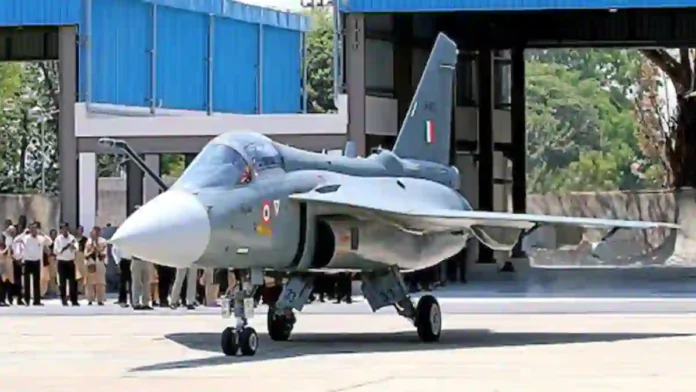The Indian government is in the final stages of awarding a ₹67,000 crore contract to Hindustan Aeronautics Limited (HAL) for the procurement of 97 additional TEJAS MK-1As. This deal is part of the Indian Air Force’s (IAF) critical modernisation plan to address the urgent need for increasing its operational fighter squadron strength, which currently stands at around 30 squadrons against an authorised strength of approximately 42.5.
The acquisition of these indigenous fighter jets is aimed at enhancing the combat readiness of the IAF, providing a modern, multi-role platform to gradually replace ageing fleets such as the MiG-21s.
Read- Armed With Hellfire Missile, Drone Control, What Makes It The World’s Deadliest Gunship
The ₹67,000 crore contract will be the second major order for the TEJAS MK-1AA variant, following a prior ₹48,000 crore contract signed in February 2021 for 83 aircraft.
The MK-1A is an advanced upgraded version of the original TEJAS MK-1A and features significant improvements such as an Active Electronically Scanned Array (AESA) radar, enhanced electronic warfare systems, and the ability to launch beyond-visual-range (BVR) missiles, which collectively increase survivability and lethality. HAL has set up a new production line in Nashik alongside the existing Bangalore facility to ramp up annual production from 16 to 24 jets to meet IAF requirements.
However, the program has faced delays, particularly due to a 10-month lag in the supply of the F404 engines from US firm GE Aerospace, which are critical for MK-1A performance. Certification of some new onboard systems is also pending, contributing to postponed delivery timelines.
For instance, the first aircraft from the earlier order was scheduled for March 31, 2024, but is now expected only by November 2024. The IAF has expressed concerns about these delays, emphasising the need for timely deliveries to maintain combat readiness.
Beyond the TEJAS deal, the government is pursuing a broader strategy to bolster the IAF’s capabilities by acquiring mid-air refueler aircraft and airborne early warning and control (AEW&C) systems, which will collectively enhance endurance, surveillance, and operational capability.
Read- India’s ‘Most Advance’ Missile Test Shows Intentions To Rival China’s Military
Read- How India’s New Deadly Artillery Gun ATAGS Can Now Strike Pak Targets Such As Lahore From Amritsar
Techno-commercial bids for six mid-air refuelers involving European, Russian, and Israeli firms are set to be opened soon, and the Cabinet Committee on Security is expected to approve the construction of six AEW&C systems based on the Airbus A321 platform. These initiatives reflect a comprehensive effort to modernise India’s aerial defence infrastructure.
The decision to place this large order is aligned with the government’s focus on self-reliance in defence manufacturing under the ‘Atmanirbhar Bharat’ initiative, bringing in participation from over 500 MSMEs and private sector players, thereby transforming India’s private defence manufacturing landscape.
The TEJAS MK-1AA production and procurement also support the indigenous Advanced Medium Combat Aircraft (AMCA) project, a fifth-generation stealth fighter effort that is being fast-tracked with both public and private sector involvement.
The imminent ₹67,000 crore HAL deal for 97 TEJAS MK-1AAs is a critical move by the Indian government to bolster the IAF’s fighter fleet through indigenous production. Despite challenges such as engine supply delays, this acquisition is a cornerstone of India’s strategy to enhance air power capability, operational readiness, and defence self-sufficiency in the face of regional security concerns and evolving threats.
Agencies




